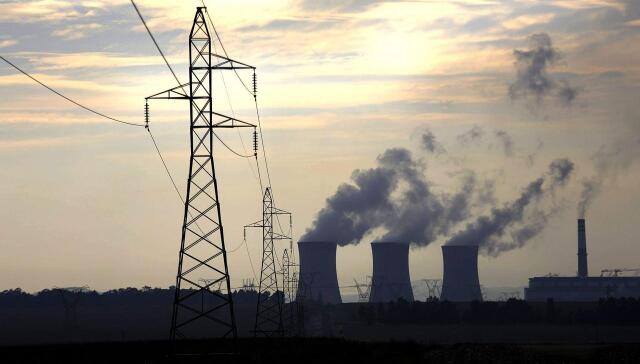Analysts and experts said the government’s withdrawal of Eskom’s exemption from disclosing its irregular, fruitless and wasteful expenditure shows that the reasons on which it was based were unsound.
THE REVERSED attempt to exempt Eskom from disclosing irregular and fruitless expenditure in its annual report and financial statements shows that the reasons behind it are suspicious.
Analysts and experts said the government’s withdrawal of Eskom’s exemption from disclosing its irregular, fruitless, and wasteful expenditures shows that the reasons on which it was based were unsound.
They said the plan sought to undermine the prescripts of good governance and to blind Parliament in order to spend money in “suspicious ways”.
The National Treasury granted Eskom an exemption from disclosing irregular, fruitless and wasteful expenditure for the three years in its annual report and financial statements after Finance Minister Enoch Godongwana signed a special government gazette dated March 31, 2023, which was the last day of the government’s financial year.
The power utility was exempted from declaring irregular and fruitless expenditures for the financial years 2022/23, 2023/24, and 2024/25.
After some critics argued that the exemption would be used by Eskom’s management and board to hide wrongdoing at the utility, Godongwana on Wednesday, April 5 told Parliament that he had decided to withdraw the exemption of the power utility from the Public Finance Management Act (PFMA) “for now”. Godongwana said this would give him space to have further consultations with the auditor-general’s office and Eskom’s auditors.
Analysts and experts said this shows that the motives behind the exemption were suspicious.
Governance experts and political analyst Sandile Swana said this indicates that there were steps that were taken to loosen the internal control that protects the assets and money within Eskom. He said this was another attempt to steal the money from the power utility.
“We know the ANC is desperate for money to fund its 2024 election. The opposition and civil organisations complained publicly and vehemently about this. So it is clear that the door to steal money for the ANC ahead of the 2024 election is now closed. That is the long and short of this,” Swana said.
Another political analyst, Sipho Seepe, said the attempt was sought to undermine the prescripts of good governance.
“The Ramaphosa administration has routinely proclaimed its commitment to being transparent and accountable. However, that is easier said than done. The Treasury note, which has since been reversed, is but one example.
“Ramaphosa himself has gone to court to ensure that information regarding his financial affairs is beyond public scrutiny,” said Seepe.
He added: “If there is something wrong with the PFMA, it should be amended. I subscribe to the view that says effective management of state affairs requires consistency, predictability and purposefulness.”
The Institute of Race Relations (IRR) head of campaigns Gabriel Crouse said since the declaration of the electricity disaster in February, they have been warning the government that this was the way to blind parliamentary oversight in order to spend money in shady ways. Crouse said the warning was also repeated when the exemption was granted.
“It must be emphasised that the Eskom chair applied, in his own words, to avoid Eskom being subject to full audit in order to provide relief for the notoriously corrupted utility,” he said.
On Wednesday, Eskom’s acting spokesperson Daphne Mokwena, said the power utility would not comment on the exemption and its withdrawal pending their engagement with Parliament.
Meanwhile, the utility’s former chief executive Matshela Koko said this was an unmitigated disaster by the National Treasury and Eskom.
“Not disclosing irregular, wasteful, and fruitless expenditures in the Eskom annual financial statements to avoid a credit rating downgrade was never an intelligent idea. The irregular, wasteful, and fruitless expenditures would be published in the Eskom Integrated Report, according to the NT statement. What do you think rating agencies will do after reading about the irregular, wasteful, and fruitless expenditures in the Integrated Report?” he asked.
Auditor-General Tsakani Maluleke welcomed the announcement, saying she believed it allowed for sufficient consultation with the National Treasury, and Deloitte – as Eskom’s appointed auditors, to address any technical issues that may have arisen.








